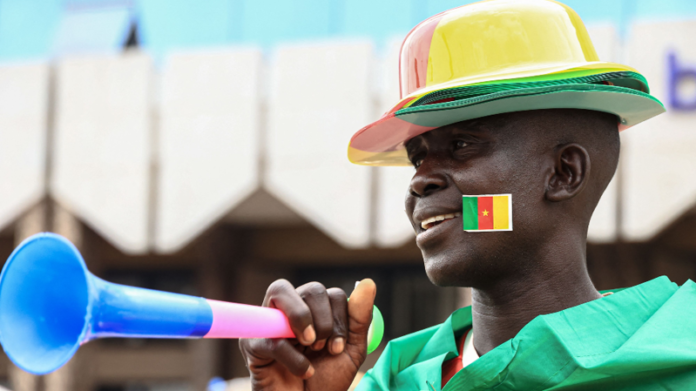A group of would-be footballers sweat and shine in their kickabout in the late afternoon heat, their boots spraying up little clouds of dust as they run.
They play a stone’s throw away from the mesmerising waves of the Atlantic Ocean, and in the shadow of the triangular peak of Mount Cameroon.
They are palpably excited that their town, Limbé, is hosting matches at the Africa Cup of Nations (Afcon). The continent’s showcase international football tournament gets under way on Sunday.
“It’s a great pleasure of us Cameroonians. It will be a pleasure to welcome people from other countries for this great tournament,” says Erik.
Frederick, who plays as a goalkeeper for one of the best teams in Limbé, says he cannot wait to catch a glimpse of Premier League stars like Egypt’s Mohamed Salah and Senegal’s Sadio Mane.
Until now he has only been able to watch them on television.
“Maybe I could talk to them, greet them. I would be very happy.”
Limbé is the only city in Cameroon’s English-speaking regions hosting Afcon matches and just as Mount Cameroon looms over Erik and Frederick’s pitch, there is a shadow over the tournament here.
For almost five years Anglophone Cameroon has been ripped apart by civil war.
Cameroon was carved up by the French and British, and that colonial legacy left a linguistic divide.
For decades after independence Anglophones complained they were marginalised, with political and economic power concentrated in the hands of the French-speaking majority.
In 2016 lawyers and teachers led a peaceful protest movement in Anglophone Cameroon. Many were arrested and within a few months the region was at war.
‘Hell on earth’
Nobody knows exactly how many people have died, though both separatist groups and government forces have been accused of atrocities.
More than a million people have been forced from their homes.
“It was like hell on earth,” says Akame Kingsly Ngolle, who ran a school in Munyenge – to the north of Limbé – but had to flee when the bullets started flying.
“As an individual everything I had was burned down, my house and every other thing.”
Most of the teachers and pupils made it to Limbé too, and the school is operating again, albeit in rented premises. The wooden walls on the ground floor of the three-storey building make it feel very much like a temporary solution.
The teachers have to deal with many difficulties, including students who have missed out on many years of education.
Nobody goes to school – or does much of anything – on Mondays either. Like most of Anglophone Cameroon, Limbé is turned into what’s known here as a “ghost town” then, because of the threats of separatist groups to attack anyone who goes to work or school.
Source: AFP




